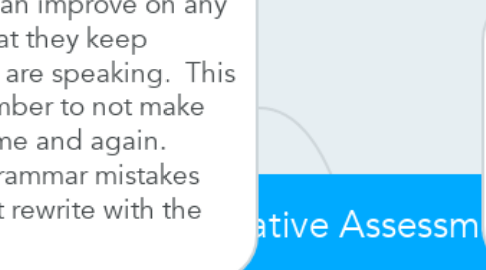Alternative Assessments
by Jason McDermott

1. Portfolios: will be used in a video form to let students check their speaking skills over the course of the class. There will be several presentations and group projects. Also, all of the other forms of assessment will be collected in the portfolios so students can check their progress over time
2. Journals: grammar journals will be kept by students so they can improve on any grammar mistakes that they keep repeating when they are speaking. This will help them remember to not make the same mistakes time and again. Teacher will fix the grammar mistakes and have the student rewrite with the corrections
3. Self/peer assessmetns: direct assessment of perfomance will be used so the students can track their own progress in class. They will be given a checklist so they can distinguish what their strengths and weaknesses are. After reviewing this, they can make their own plan as to how to progress in the future.
4. Rubrics: will be used to give students scores. They will be used to assess pronunciation/intonation, fluency, vocabulary, and content. A scale of 1-5 will be used and students will be given examples of what each score looks like for each of the categories being assessed
5. Conferences/interviews: this will be very important because the teacher and student can discuss what the student will talk about for oral presentations. They can review the video portfolios and give feedback on the progress of the student needs to work on to improve
6. Observations: will be made in class to check students' speaking progress. Checklists will be made to measure students pronunciation, intonation, quality of responses, interaction with classmates, and participation in group discussions


